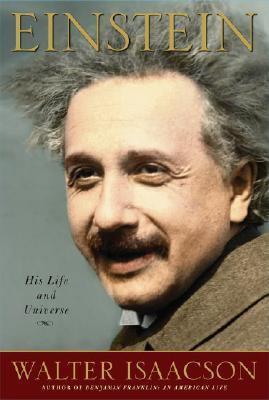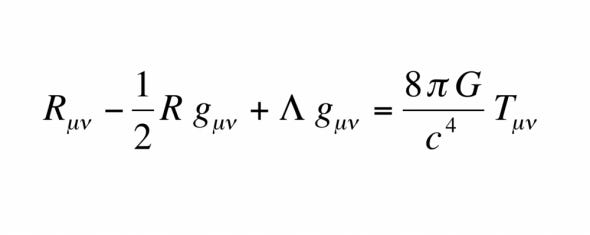Einstein His Life And Universe | Book by Walter Isaacson

Walter Isaacson is a American journalist a distinguished career in roles such as Aspen Institute, CNN, and Time magazine, best known for his biographies on influential figures like Albert Einstein and Benjamin Franklin. His ability to depict narratives into stories solidified his reputation as a figure in the world of journalism and biography.
I attract space-time and here is my proof:

Review By: Joel Lovely
Who should read this book ?
Einstein, a physicist whose ideas birthed whole new branches of science through his equations and “thought experiments”. Humanity, thanks to his diligence, knows more about the world around itself than ever before, yet this illustrious individual is no more. I delved deep to understand who Einstein was as a person and how he thought. People are interested in the mindset of a scientist and the great historical pieces of evidence prevalent in today’s world.
Summary:
While it’s objectively known that Einstein is the inventor of many prevalent scientific concepts in today’s world, such as quantum science, astronomy, and the theory of relativity, he wasn’t the perfect human being. Like many of us, he had his flaws; he was not the best father, husband, and had professional setbacks however, Einstein prevailed not solely because he was a genius, but because of his knack for questioning basic underlying principles. Einstein is a prime example of how innate curiosity mixed with rebelliousness can shake the world.
Childhood:
Einstein grew up with a Jewish background; however, he quickly questioned his faith. In the coming years, he would abandon his faith but not his Jewish identity for years to come. Einstein became deeply invested in political activism, ingrained by the rise of anti-Semitism, which even today seems prevalent. His love for physics came from curious thinking about the world around him, asking questions like “what would it feel like to ride along a light beam,” invigorating his passion at a young age. Einstein breezed through high school, never completing his high school diploma. At age 17, he finally enrolled in the Swiss Federal Polytechnic School, where he found college disinteresting. He had a rebellious nature towards college, disdaining professors, and later ranked 4th out of 5 in his bachelor-level class. Finding no luck after academia, he was jobless until the age of 22 when he worked as a 3rd-class patent worker. Showing amazing grit and determination, he wrote a series of papers (4) in 1905 that transformed physics and also won him a Nobel Prize later in 1921 for his theory about the photoelectric effect. He then finally went to school to get a Ph.D. from the University of Zurich.
Full Throttle:
Einstein’s theory of relativity in 1905 wasn’t widely accepted, and he was seen as a radicalist in physics. However, one of his papers, titled “Does the Inertia of a Body Depend Upon Its Energy Content?” would derive his most famous equation, E = mc^2.
His work on the photoelectric effect, which described the ether as a universal substance to act as the medium for transmission of electromagnetic waves, and the idea that light was neither a wave nor a quanta, was rather accepted and later turned into a new branch of science called quantum mechanics. This new field would later accept notions like atomic structure. Ironically, Einstein would resist this as rebellious thinking because it based its principles on statistical thinking.
Nonetheless, Einstein wrote another paper on the theory of relativity, calling it the general theory of relativity, where he devised many more equations, one of which described gravity as the curvature of space-time. He later proved this theory during the 1919 solar eclipse.
Einstein inevitably tried to merge his theory of relativity with quantum mechanics, creating what he called a unified field theory. However, this theory never prevailed as he spent his life calculating. Nevertheless, Einstein drew attention to holes in quantum mechanics, some of which are relevant today. One of these is called quantum entanglement, which occurs when two entities disobey the theory of locality and move with no lapse, behaving as one entity. Interestingly, these two particles can be light-years apart from each other.
Einstien Cares:
Einstein’s drive stemmed from his view of nature as mysterious, holding untold truths waiting to be uncovered. He perceived religion as opposing and constricting, yet during his lifetime, his birth religion underwent a renaissance of sorts (WW1 – WW2), and he made concerted efforts to support his fellow Jews.
Einstein joined the Zionist movement, which aimed to establish a homeland for Jewish people in Palestine. He believed in the importance of a Jewish state as a sanctuary and a symbol of self-determination for the Jewish people. Despite not aligning with traditional religious beliefs, Einstein felt a strong cultural and historical connection to his Jewish heritage and sought to support the Jewish community in various ways, including advocating for the establishment of a Jewish homeland.
Einstien Personality Flaws:
Einstein didn’t place much consideration on personal relationships. He held a view of positivism, and when life became challenging, he would often abandon those around him, as evidenced by his rocky relationship with his two biological sons and his first wife, Mileva Marić. Additionally, he married his first cousin, Elsa Einstein, which I view as weird.
Epilouge:
Einstein died in 1955, and shortly after his death, a pathologist named Thomas Harvey removed his brain during the autopsy without the consent of his family. Harvey did indeed keep Einstein’s brain Harvey sectioned the brain into approximately 240 pieces and preserved them. Over the years, he sent some of these sections to researchers around the world in an attempt to understand the anatomical basis of Einstein’s genius.
Conclusion:
Einstein didn’t just redefine physics; he influenced a whole realm of science, including philosophy and politics. He serves as a constant reminder to those who define intelligence as deterministic or old-fashioned.